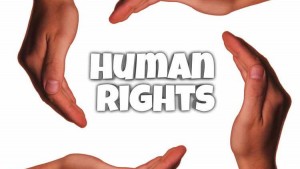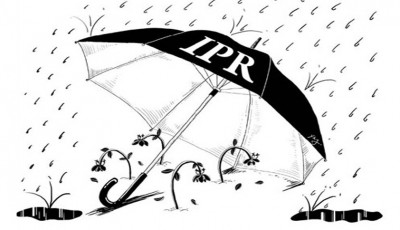In this blog post, Punyasloka Mukhopadhyay, a student, pursuing his second year LLB at KIIT School of Law, KIIT University and a Diploma in Entrepreneurship Administration and Business Laws from NUJS, Kolkata, compares and contrasts the interrelationship between human rights and intellectual property rights.
Introduction
Human Rights law and Intellectual Property Rights (IPR) law are entirely two different areas of law. Since their beginning, they grew isolated from each other. Neither of them infringed on each other’s domains. But recently, it has been observed that both the areas of law are interrelated with each other. One view is that both Human Rights Law and IPR law are in fundamental conflict with each other. According to this view, IPR law infringes on the different areas of Human Rights law, especially when economic, social and cultural rights are concerned. Another view is that both IPR Law and Human Rights law can co-exist with one another.
No reference to human rights was seen in the fundamental treaties of IPR law, such as the Paris Convention or the TRIPS Agreement. The fundamental document of Human Rights law – the 1948 Universal Declaration of Human Rights – protects authors’ “moral and material interests” in their “scientific, literary or artistic production[s]”[i]. This could be seen as an indirect reference to IPR law. When the economic, social and political rights come into view, we can see the inter-connection between Human Rights and Intellectual Property Rights. This is where the conflict between the two areas of law arises. Here, the emphasis is to be given on two points – the neglected rights of the indigenous communities and the social implication of the TRIPS Agreement.
The indigenous communities claim that their governments should recognize their claim over their traditional knowledge matter, relating to agriculture, biodiversity, etc. According to the IPR regime, traditional knowledge is considered a part of the public domain, since it does not meet the established criteria for protection or private ownership. Since this traditional knowledge is un-owned, many private enterprises use this knowledge for further inventions, and protect their inventions through patents, copyrights, etc. and the indigenous communities are deprived of their legitimate share. Thus, the existing flaw in the IPR regime leads to the exploitation of the indigenous communities by outsiders, which leads to the violation of human rights of the indigenous communities. In this respect, IPR law infringes on the domain of Human Rights law. The governments should enact legislations, such that the indigenous communities can seek damages for unauthorized uses of their traditional knowledge. The governments can also protect traditional knowledge by denying patents, copyrights, etc. for those objects, which have been derived from traditional knowledge.
TRIPS Agreement
Another point of controversy is the TRIPS Agreement,  which advocated high minimum standards of Intellectual Property Rights protection for all World Trade Organisation (WTO) members. Non-compliance with the terms of the agreement can result in trade sanctions. This treaty has negative implications for the underdeveloped countries, whose previous commitment to Intellectual Property Rights protection was almost close to zero. Transfer of technology to the developing countries will be adversely affected, due to high minimum standards of protection for new inventions and technologies. Furthermore, it will affect the economic, social and cultural aspects of human rights. For example, due to high minimum standards of protection for patented pharmaceuticals, there will be too many restrictions on the access to these pharmaceuticals, which would adversely affect one’s right to health. Thus, the practical application of the treaty will be difficult, unless it is viewed from a human rights perspective.
which advocated high minimum standards of Intellectual Property Rights protection for all World Trade Organisation (WTO) members. Non-compliance with the terms of the agreement can result in trade sanctions. This treaty has negative implications for the underdeveloped countries, whose previous commitment to Intellectual Property Rights protection was almost close to zero. Transfer of technology to the developing countries will be adversely affected, due to high minimum standards of protection for new inventions and technologies. Furthermore, it will affect the economic, social and cultural aspects of human rights. For example, due to high minimum standards of protection for patented pharmaceuticals, there will be too many restrictions on the access to these pharmaceuticals, which would adversely affect one’s right to health. Thus, the practical application of the treaty will be difficult, unless it is viewed from a human rights perspective.
Resolution of the Conflict
For resolving the conflict between Human Rights and IPR, the precise rights which are being undermined should be identified. The Human Rights bodies should develop specific interpretations of the ambiguous rights (mainly economic, social and cultural rights) so that they can comply with the terms of the TRIPS Agreement. Secondly, if the TRIPS Agreement is viewed from a Human Rights perspective, then the consumers of Intellectual Property products will be on an equal footing with the owners of Intellectual Property products. The agreement views the consumers of these products inferior to the owners of these products. But if a Human Rights dimension is added to the agreement, then the consumers will also become holders of these internationally guaranteed rights. Thirdly, instead of advocating minimum standards for IPR protection, the governments should impose maximum standards for IPR protections. This would act as a limit for the increasing standards of IPR protection. Lastly, the international forums on IPR, such as the World Intellectual Property Organisation (WIPO), the World Trade Organisation (WTO), etc., while making new laws on IPR, should analyze the laws with a Human Rights perspective. It is only in such circumstances that the Human Rights Law and IPR law will be able to co-exist with one another properly.
[divider]
References:
[i] Universal Declaration of Human Rights, Article 27.
 Serato DJ Crack 2025Serato DJ PRO Crack
Serato DJ Crack 2025Serato DJ PRO Crack









 Allow notifications
Allow notifications


